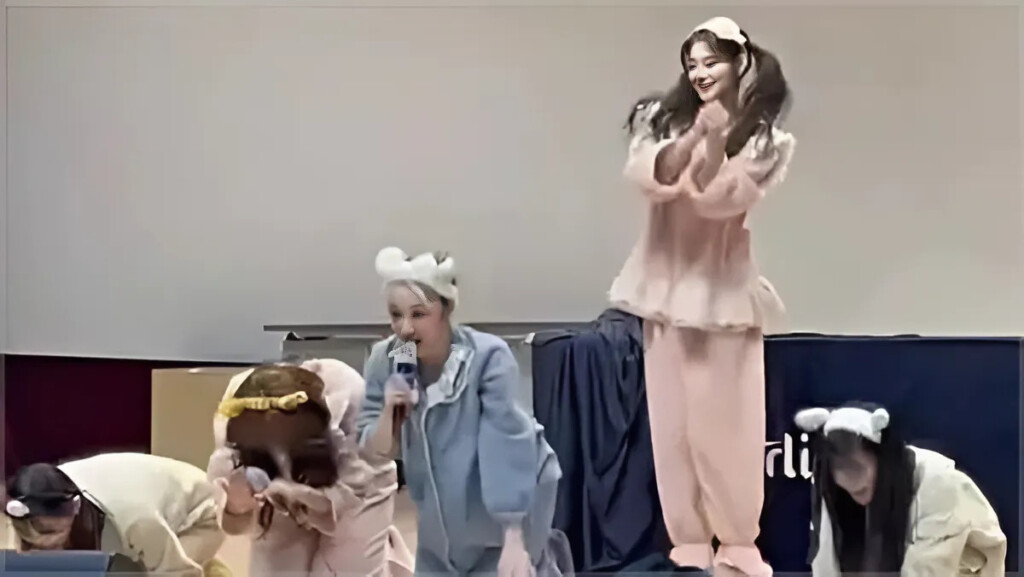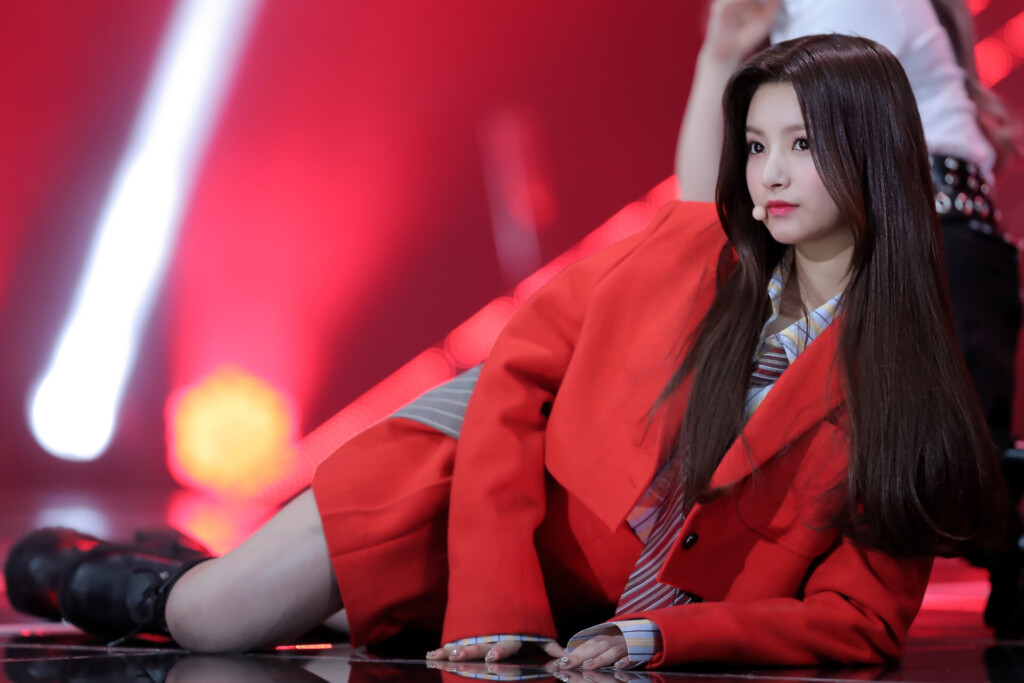K-pop is a cultural wave sweeping across the world, drawing in young talents from every corner. But with diversity comes a brutal reality check—especially for foreign idols. Wang Yiren, the Chinese member of EVERGLOW, is a prime example. The controversies surrounding her were nothing short of high-speed cultural collisions, leaving lessons not just for the artist but for the entire Korean entertainment industry.
“Keun Jeol” vs. “Waving” – The Fate-Sealing Greeting
It all began in early 2022 when EVERGLOW sent New Year’s greetings to their fans. While the Korean members knelt and bowed deeply in the traditional “keun jeol” style, Wang Yiren simply stood and waved.

A small gesture, but big enough for SBS News to publish an analysis of netizens’ reactions:
- Critics: “If she’s working in Korea, she should respect Korean culture!”
- Neutral voices: “In China, bowing like that is reserved for funerals or special ceremonies.”
- Defenders: “A greeting is a greeting. Don’t force foreign idols to conform!”
In reality, Wang Yiren was not being disrespectful—she simply chose a different form of greeting. However, as Naver pointed out, in the K-pop industry, foreign idols need more than just talent; they must adhere to certain unspoken rules: ‘If you want to stay in Korea, act Korean.’
And before the bowing controversy could settle, Wang Yiren stepped on another cultural landmine—this time, one with political implications.
“Xinjiang Cotton” – A Misstep with No Way Back
Just months later, Wang Yiren posted on Weibo in support of Xinjiang cotton. If she were only active in China, this wouldn’t be an issue. But she was in South Korea, where public opinion leans toward the West, which has accused China of forced labor in the cotton industry.

Her post immediately became a hot topic on Koreaboo, sparking thousands of comments:
- Korean fans: “Support anything, just not Xinjiang cotton!”
- Chinese fans: “Chinese idols can’t stay silent when their country is being slandered!”
The same action, yet two entirely different interpretations. This was no longer just about Wang Yiren—it was a dilemma faced by all Chinese idols in K-pop.
Caught in Crossfire: No Right Choice
Wang Yiren is far from the first Chinese idol caught in this dilemma:
- Jackson Wang (GOT7) openly supported “One China,” leading to backlash from international fans while becoming a national hero back home.
- Lay Zhang (EXO) had to cut ties with Western brands to maintain his image in China.
- Lucas (NCT) wasn’t involved in politics, yet his personal scandal was enough to put his career on indefinite hold.
A Naver analysis once nailed the issue: Chinese idols are always walking a tightrope. No matter which side they choose, they will lose something.
- Too patriotic? Lose international fans.
- Too neutral? Lose support from their homeland.
There is no truly safe option.
Silence Isn’t Always Golden
Under pressure from both sides, Wang Yiren chose silence. But in the world of K-pop, silence is also a statement. Doing nothing can still be seen as guilty. Had she handled it more tactfully, she could have said:
“I deeply appreciate both Korea and China and respect the cultures of both countries. Whether bowing, waving, or shaking hands… I always show my sincerity to all fans!”
Perhaps a well-crafted statement could have helped her weather the storm, but she chose silence—a risky move. Her story is not just a personal issue but a reflection of a larger reality for foreign idols in K-pop: their struggles extend beyond the stage into politics, culture, and public scrutiny.
A simple wave, seemingly harmless, can become a major misstep. The lesson? Being a foreign idol in K-pop isn’t just about knowing how to wave—it’s about knowing when and where to wave.